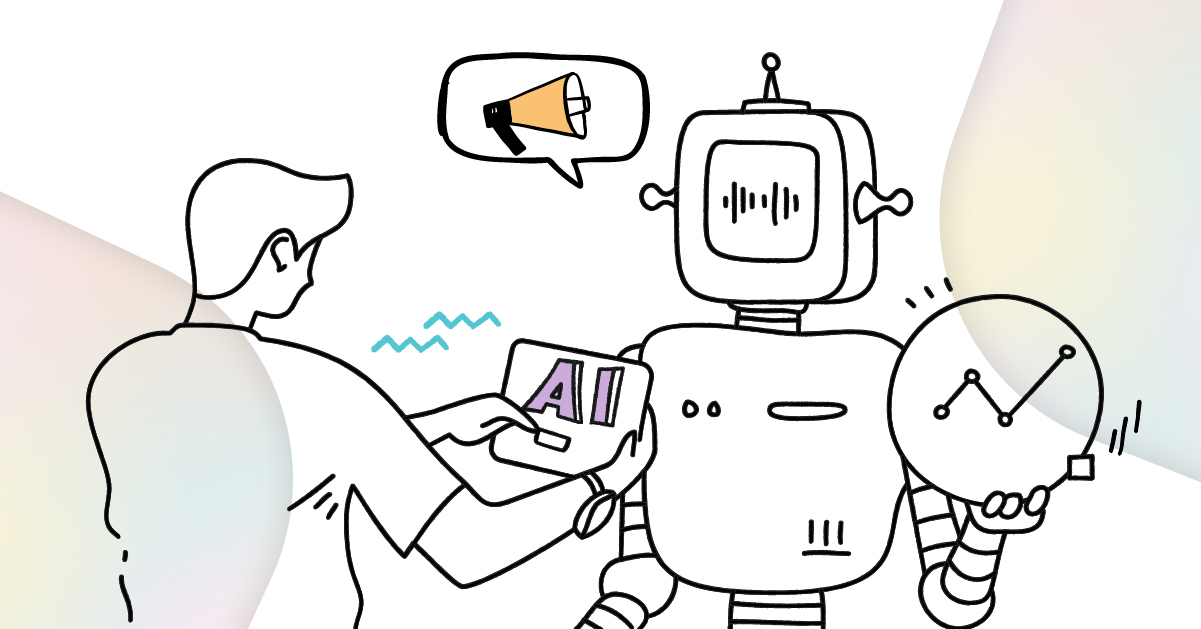





The AI tide has been rising for some time. That much is clear. If you’ve been anywhere near social media in the past 18 months, you’ve probably been bombarded with monstrous AI-generated images and absurd ChatGPT prompts. But beyond providing experimental fodder for people’s LinkedIn posts, the practical application of AI for content creation still feels like it’s yet to fully take shape.
Of course, there’s all the usual double-edged discussion around its potential for outsourcing menial tasks to make our jobs easier, versus the risk that it will make more of us redundant. And that’s without mentioning the frightening implications of deep fake videos and audio, alongside AI’s potential to be harnessed for the spread of misinformation.
For the most part, so far it’s been kinda funny, if not fascinating.
Tried using Text-to-Video AI to generate a @BlueJays commercial and it...um...did not go well....🫤 pic.twitter.com/p3tzH9euUc
— Josh Shiaman (@JoshShiaman) June 8, 2023
Uncanny valley horrors aside, the reality is that AI’s use in marketing isn’t even all that new. But its range of applications certainly seems to be accelerating. At the very least, it’s becoming more eye-catching.
The launch of ChatGPT by OpenAI nearly broke the internet. AI now has the ability to write articles, briefs and product descriptions quickly – albeit with varying success – within set parameters. It’s a serious player, and will only improve over time. Chatbots are also becoming more prevalent in customer service, accounting for the majority of initial customer interactions.
While consumers might argue that this process comes across as impersonal, it’s extremely useful for businesses as a means of triaging customer inquiries. And perhaps somewhat counter-intuitively, AI is also becoming increasingly popular as a tool for personalisation.

AI can potentially reduce customer acquisition costs by up to 50%

AI-powered customer service automation is projected to increase at a compound annual growth rate of 58.5%

Successful personalisation can result in 20% higher customer satisfaction, and a 10-15% increase in sales conversion
Sources: Marketing in Asia, REVE Chat, McKinsey
AI is showing signs of being a potential game-changer for SEO. Microsoft’s AI-powered (and much maligned) Bing search engine offers personalised targeting for advertisers. Instead of a speculative enquiry, search becomes a conversation with more precision and insight than ever.
Meanwhile, AI image generators like DALL.E 2 are stirring the pot with the ability to create ads for a fraction of the budget and hassle of organising a photoshoot or hiring a designer.
For now, the burning question remains: How can you take advantage of AI for your brand marketing?
The biggest strength of artificial intelligence in its current form is wrangling data much faster than humans are able to. It can pull vast amounts of info from every corner of the web in moments – analysing, organising, and applying it to algorithms, potentially saving hours of research.
Another upside is in automation. AI is naturally more willing than most of us to carry out monotonous tasks, over and over. Other areas where AI excels include:
Marketing with genuine cut through is about more than implementing a strategy off the back of data. There’s an element of creativity at play too. What works isn’t always 100% intuitive or logical. AI still struggles with the kind of complex thought required to create something that adds up to more than the sum of its parts. For example, it can’t single-handedly write a script for an ad that will become a timeless classic. But it might be able to give you some useful thought starters along the way.
Another blindspot of AI is its lack of humanity. Shocking, right? Standout marketing and advertising material relies on appealing to emotions, which requires empathy. As does the best customer service. AI tends to stick to parameters, with little flexibility and the inability to go above and beyond to retain a customer’s attention.
Other AI shortcomings include:
So, can we trust AI enough to hand it the keys to the castle, or should we continue to proceed with caution?
The recent exponential growth in AI has been so fast and unregulated that the world is finding it hard to keep up. It’s almost like we’re all guinea pigs for a clinical trial that we never signed up for. It’s a wild west kind of energy, which makes it all the more important to have your wits about you, both as a consumer and marketer.
As with any new technology, there will be wins and losses, as well as challenges in deciphering which of the many existing and emerging applications are actually worth your while. It remains a time of trial and error, but how will we know when it ends? And by the time we have sufficient confidence in the tools available to us, will they already have been superseded?
Whatever your stance on the use of AI, I think we can all agree that its peak use remains in covers of famous songs by animated characters.
Computer, can I get an AI video of Hank Hill singing “Fast Car,” please? pic.twitter.com/E2QRHNKQs8
— William Goodman (@goodmanw) January 14, 2024
It’s okay to have FOMO, or feel overwhelmed by relentless requests to ‘do something with AI’. Suffice to say, it’s probably not time to fire all your staff and kick back in the Bahamas while robots run your business for you. But it might be worth dipping your toes in the shallow end of AI possibility. See what works and what doesn’t on a few smaller projects, without totally flipping your business on its head.
It’s not time to hold up the white flag of redundancy either. There’s still plenty of purpose for us puny humans. There are some things that AI does very well, but a lot that we can still do better.
In a nutshell, AI tools should continue to become more sophisticated and free us up to put more energy towards creative endeavours and big picture thinking. You know, all the ideas you wish you had the bandwidth to execute and wow your clients with, if only this damn admin wasn’t always getting in the way.
That is, at least until the machines grow tired of doing the donkey work and the uprising begins in earnest. But hey, try not to think about it too much.
